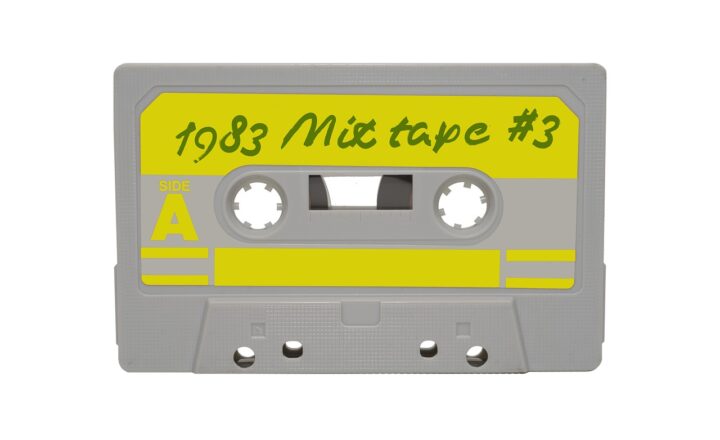Bringing Books to Life: The Impact of Literature on Modern Television
November 18, 2024

In the vibrant tapestry of modern television, adaptations of literature have emerged as a popular trend, sparking creativity and engagement among diverse audiences. The melding of narrative depth from novels and the visceral visual experience of television creates a unique platform that can bring classic stories to life in innovative ways. From compelling adaptations of renowned novels to contemporary interpretations of timeless themes, the impact of literature on modern television is both profound and transformative.
1. The Golden Age of Adaptations
Often dubbed as the “Golden Age of Television,” the last two decades have witnessed a remarkable surge in adaptations of literary works. This renaissance can be attributed to various factors, including the shift in how stories are consumed and the growing appetite for quality content. The proliferation of streaming services such as Netflix, Hulu, and Amazon Prime has spawned a plethora of opportunities for storytellers to adapt novels into multiple seasons, thereby exploring character arcs and plot nuances in depth.
**Examples of Successful Literary Adaptations:**
– **‘The Handmaid’s Tale’**: Margaret Atwood’s dystopian novel, originally published in 1985, found new life as an award-winning series that resonated with contemporary themes of gender inequality and totalitarianism.
– **‘Little Fires Everywhere’**: Celeste Ng’s novel beautifully translated into a television drama, explores social issues around race, motherhood, and privilege, affirming the relevance of literature in addressing modern social justice topics.
– **‘Big Little Lies’**: Based on Liane Moriarty’s novel, this series not only captivated audiences with its star-studded cast but also delved into the intricacies of female relationships, trauma, and secrets, showcasing the emotional depth often present in literary works.
Each of these adaptations maintains the essence of their source material while infusing new themes and modern circumstances that resonate with today’s viewers.
2. Expanding Narratives and Thematic Depth
Adaptation provides an opportunity for writers, directors, and producers to expand a story’s narrative by incorporating rich subplots and character development that a single book may not fully explore. Television’s episodic format allows for deeper exploration of thematic elements, providing the audience with a richer understanding of the characters’ motivations and complexities.
**The Strength of Multi-Season Adaptations:**
By stretching a novel into multiple seasons, creators have the chance to delve into backstories and secondary characters. For example:
– **‘Outlander’**, based on Diana Gabaldon’s historical fiction series, has succeeded in presenting multiple character perspectives and historical events that enhance the original plot.
– **‘The Witcher’**, inspired by the book series by Andrzej Sapkowski, showcases the fantasy genre’s adaptability, introducing viewers to the mythical world of monsters, magic, and moral complexities while maintaining a faithful tribute to its literary roots.
This extensibility allows for creativity while respecting the original narratives, leading to varied interpretations that can breathe new life into well-trodden tales.
3. Challenges and Criticisms of Adaptation
While adaptations have garnered acclaim, they are not without controversy. Fans of original works often grapple with adaptations that diverge from beloved texts. The challenge lies in balancing fidelity to the source material while offering something fresh and exciting for a television audience.
**Common Criticisms Include:**
– **Character Alterations**: Changes to character arcs or thematic elements can alienate book purists. For example, the adaptation of *‘Game of Thrones’* stirred considerable debate over deviations from the original *‘A Song of Ice and Fire’* series.
– **Pacing Issues**: Some adaptations rush plot points or fail to delve deeply enough into character motivations, leading to an audience disconnect. A notable instance is the adaptation of *‘The Dark Tower’*, which disappointed fans due to its rapid pacing and failure to capture the depth of Stephen King’s masterpiece.
Navigating the fine line between homage and innovation often presents itself as a significant obstacle for creators seeking both commercial success and integrity to the original literature.
4. The Cultural Impact of Adaptations
Literary adaptations serve as cultural bridges, igniting interest in novels that might otherwise remain unexplored. By translating stories from page to screen, adaptations breathe new life into classic literature, motivating viewers to read the original works.
This phenomenon creates a cyclical relationship between literature and television; adaptations can lead to increased book sales and renewed discussions on the themes presented:
– **Renaissance of Classical Literature**: Series like *‘Pride and Prejudice’*, *‘Emma’*, and *‘Sherlock Holmes’* continue to capture audiences, leading to a resurgence in interest in classic literature.
– **Social Conversations**: Adaptations such as *‘The Hate U Give’* spark dialogues about race relations and social justice, showcasing how literature can address real-world issues through a visual medium.
Ultimately, the cultural impact of adaptations reaches far beyond entertainment, becoming vehicles for social discussion and awareness.
5. Looking Ahead: The Future of Literature on Television
As the television landscape evolves, so too will the relationship between literature and screen adaptations. The rise of streaming platforms continues to provide opportunities for diverse and inclusive storytelling, leading to expanded representation in adapted works.
**Anticipated Trends Include:**
– **Diversity in Adaptations**: There is a growing focus on stories from varied cultural perspectives. The adaptation of works by authors of color and LGBTQ+ narratives will likely define the next wave of literary television.
– **Interactive Storytelling**: As technology continues to advance, interactive adaptations that allow viewers to engage with the story may grow popular, offering immersive experiences that blend literature and viewer agency.
The future of literature on television holds immense promise, with the potential to captivate even broader audiences while celebrating the storytelling excellence that literature offers.
Conclusion
The impact of literature on modern television is both profound and multi-dimensional. Through successful adaptations, the interplay between page and screen offers audiences a chance to engage with narratives in novel ways. Despite the challenges that come with adaptation, the ability to explore thematic richness and societal relevancy continues to imbue literature with new life on screen. The future looks bright, with potential trends promising to enhance this relationship further, sustaining literature as a cornerstone of visual storytelling in our modern age.






